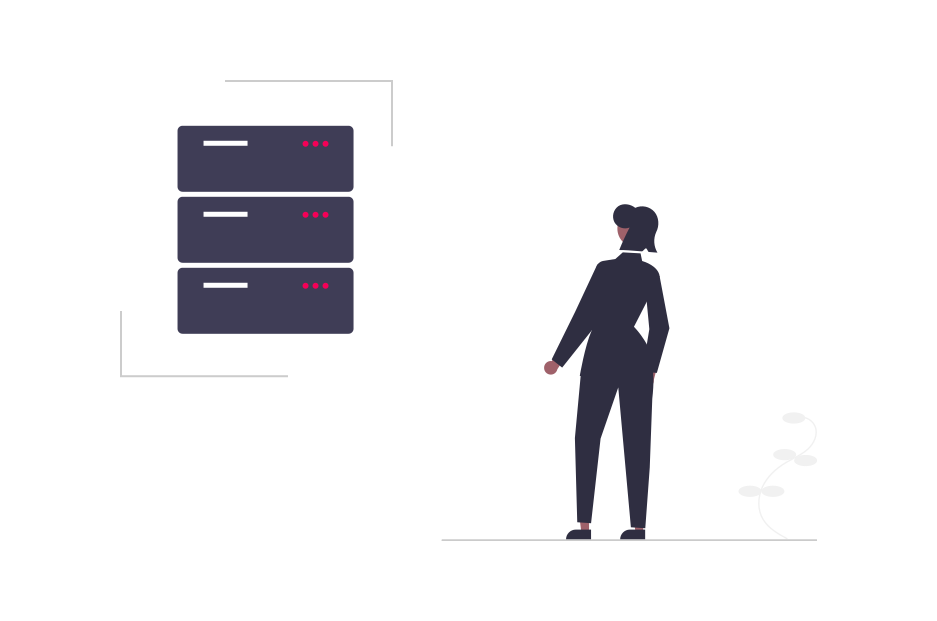What are Cloud-based Databases?
Cloud-based databases are the next evolution of databases to serve the multi-cloud-enabled modern enterprises. Your team members access it through a cloud platform and most are subscription-based services.
This service is often abbreviated “DBaaS” (Database as a Service). Cloud-based warehousing provides an alternative to businesses who cannot or do not want to:
- Store
- Manage
- Secure certain data on an in-house server
- Be responsible for building out the infrastructure necessary to keep servers in-house.
- Need additional off-site backup for disaster planning and business continuity
Some also call cloud-based databases “data lakes.” As the name suggests, you can fill the data lake with data. Or you can “drain” it if you have less data to store. Service providers price most cloud-based database services based upon the amount of space you require for your data. You may also pay extra for certain customizations, specialized integrations, or tools. However, many advanced tools will likely come with the service as a package deal.
DBaaS is a $10.37B industry and analysts expect it to grow 15% over the next five years.
What Are the Enterprise Use Cases for Cloud Data Warehousing?
Cloud databases serve several important functions for businesses and solve many common business problems like:
Need for Highly-Secure Place to Store Data
Any reputable DBaaS company has layer upon layer of security measures in place to provide data security. You still need to invest in employee security training and safeguard end-points (devices that access the database).
Note: free versions of your chosen cloud service may not have the same security. We will also note that some services may be inadequate for highly regulated industries like healthcare and finance. However, many services have security measures to address industry-specific needs.
Need to Start Small and/or Scale Quickly
It would take time to buy new physical servers when you run out of space, but cloud services can almost infinitely expand as you need them.
Only Want to Pay for What You Need
Even small businesses deserve the benefit of safe data warehousing. But they have no place to put servers or the people to maintain them. DBaaS helps smaller businesses and start-ups compete with companies that have more in-house resources and infrastructure capabilities.
Cut the Downtime Associated with In-House Servers
Cloud-based companies pride themselves on reducing or eliminating down-time for their customers. To achieve this, they hire the best to keep that promise. They incorporate intentional redundancy into their product. This allows them to switch to a different data location if something goes wrong with one. This level of uptime may not be possible with in-house warehousing. And redundancy is typically a wasteful negative for the average business while it’s a positive for a cloud-based database provider.
Reduce the Data Silos in a Company
In many businesses, different departments are using different databases. This creates silos and bottlenecks in operations. DBaaS helps companies warehouse and access all of their data in one place. You can then set up tiered and parallel access levels to control who has privileges with what data and in what capacity (delete, add, view only, download, etc.)
Ensure Seamless Access for Remote Employees
You can set up security to allow remote employees and contractors to access the database from anywhere. You can stipulate and enforce rules, such as only accessing a secure network and/or approved device.
Typical Features, Functions, and Capabilities Representative of DBaaS?
- Built-in security
- Built-in back-up
- Built-in recovery support
- Ample self-service resources
- Live support when you need it
- Rapid scalability and retraction
- Data integration
- Ability to integrate approved third-party software
- Transaction processing
- Multiple views and reporting
- Access from anywhere with secure internet or limit access to company-approved devices
- Access-tracking to ensure only authorized users are accessing certain data
- Machine learning-enabled monitoring. It can quickly identify suspicious behavior that may suggest internal or external tampering.
- Ability to manage your cloud-based data warehouse through your in-house team. Or allow the cloud service provider to manage it.
- Create a hybrid database between your in-house server and DBaaS. Or build a multi-cloud integration among more than one cloud data warehousing provider. This feature addresses different regional or international database needs.
- Web interface or cloud service API access options


